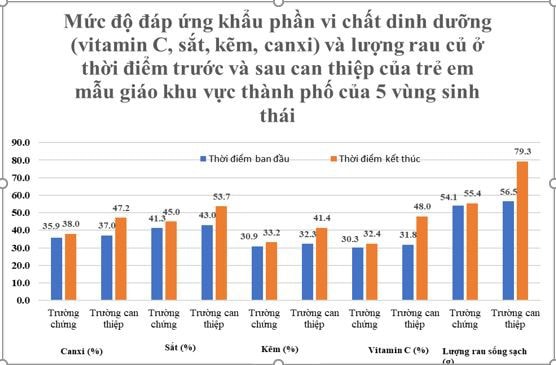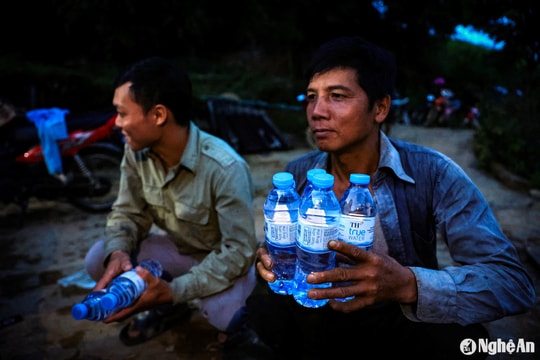TH Group proposes to build School Nutrition Law
“From the desire to contribute to improving the health and stature of Vietnamese people and its extensive experience in improving the health and stature of Vietnamese people, TH Group proposes to build a separate law, the School Nutrition Law” – TH Group founder spoke at the Conference of the Government Standing Committee working with businesses on solutions to contribute to the country's socio-economic development, taking place this morning, September 21.
Proposal to build a School Nutrition Law
In the comments and discussions at the conference, the representative of TH Group attracted attention with the proposal to build a School Nutrition Law, aiming to improve the health and stature of the young generation in particular and Vietnamese people in general.

Labor Hero Thai Huong - General Director of Bac A Commercial Joint Stock Bank, Founder, Chairman of TH Strategy Council said: Investing in health is contributing to improving the race of a nation, is investing in the strategic development of the country. In recent years, Vietnam has achieved many achievements in improving the nutritional status of the people, completing national nutrition goals ahead of schedule, but there are still many nutritional problems, especially in preschool and school age children. Currently, Vietnam is still in the group of countries and territories with low average height, ranking 15th from the bottom among countries and territories in the world.

According to the World Health Organization (WHO), about 86% of a person's height and physical development occurs by the age of 12. Therefore, investing in physical and mental strength for this golden age is extremely important so as not to miss out on valuable development opportunities in life.
In many countries around the world, such as Japan, since 1954, there has been a School Nutrition Law, regulating nutritional standards and food safety management for school meals. In Thailand, the Government has issued a set of standards for school lunches. And in Indonesia, the newly elected President has pledged to implement a Free Lunch program for students from 2025,...

“TH Group proposes to build a separate law called the School Nutrition Law. A separate law is needed because the regulations will be very large and comprehensive, affecting the health and stature of future generations. The experience of countries that have successfully implemented it, including Japan, is a clear demonstration of this issue” – Labor Hero Thai Huong expressed.
The Government thanks businesses for proposing specific tasks on many important issues of the country today, including proposals on child nutrition care and improving people's physical health... Based on the proposals, agencies will research, assign tasks, and order businesses to carry out.
Prime Minister Pham Minh Chinh
Scientific and practical foundations
Faced with the current situation of school nutrition and school meals with many shortcomings, the proposal of Ms. Thai Huong and TH Group on building a Law on School Nutrition is considered appropriate and necessary, especially in the context that we have scientific and practical bases from systematic experimental studies of agencies such as the National Institute of Nutrition and the Ministry of Education and Training.
In 2013, the National Institute of Nutrition and French nutrition experts collaborated with TH Group to build a model combined with research and product testing. The model was implemented in 15 kindergartens and primary schools with 3,600 children in Nghia Dan district, Nghe An province. Focusing on implementing transparent control groups, assessing diet and micronutrient deficiencies by testing blood, vitamin A, zinc and Hb before and after drinking milk, this research was assessed as serious and scientific.
TH true MILK Sterilized Fresh Milk for School Milk is the first product to be confirmed by the Ministry of Health to be effective in research on improving the nutritional and micronutrient status of children, and is a practical basis for promulgating School Milk standards in the National School Milk Project, by Decision No. 1340/QD-TTg of the Prime Minister, contributing to reducing the situation of bringing milk of unknown origin and not ensuring food hygiene and safety into schools.
In 2019, the Ministry of Education and Training, the Ministry of Health and independent experts consulted the practical experience of developed countries in the world, specifically Japan, to implement the "School meal model to ensure proper nutrition combined with increased physical activity for children, pupils and students".

This model was piloted in the 2020-2021 school year at 10 schools in 10 provinces and cities, representing 5 major ecological regions across the country, including: the Northern mountainous region, the Red River Delta, the Central region, the Mekong Delta and the Central Highlands. In the pilot model, school meals are approached in the direction of using completely natural foods, based on the agricultural advantages of the region, and fresh milk is scientifically included in the meal composition.

The main intervention of the model is 400 diverse, balanced, micronutrient-rich school meal menus, afternoon snack using 1 glass of fresh milk to improve calcium intake, combined with nutrition education and physical education. Diverse, scientific, reasonable school meals will provide all the micronutrients necessary for children's development and this is the most long-term, sustainable solution in the fight against micronutrient deficiency in children.
According to Ms. Thai Huong, Founder and Chairwoman of TH Strategy Council: The School Nutrition Law needs to be built in a methodical, careful, and meticulous manner, covering many contents on health care for children, pupils, and students, on the basis of research and models that have had experimental results, such as "Model of school meals ensuring reasonable nutrition combined with increasing physical activities for children, pupils, and students" is an example.

“Practical results from the pilot model show that if schools are provided with the necessary and sufficient conditions including improving facilities, human resources, professional training, combining nutrition education and physical education, it is possible to improve children's nutritional status, reduce malnutrition and overweight and obesity, help children develop better physically, create healthy eating habits, and help prevent non-communicable diseases in adulthood,” Ms. Thai Huong affirmed.


.jpg)


